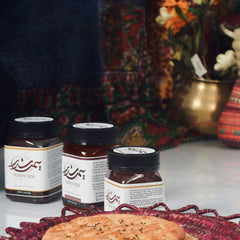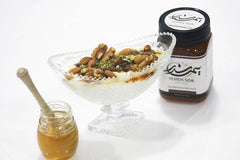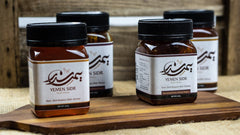The Rich History of Yemeni Honey
Yemeni honey is renowned worldwide for its exceptional quality and unique flavor. With a history dating back thousands of years, Yemeni honey has played a significant role in the country's culture, economy, and traditional medicine.
Traditional Beekeeping in Yemen
Beekeeping in Yemen has been practiced for centuries, passed down through generations. The traditional method of beekeeping involves using small, handmade, cylindrical hives called 'mudhives.' These hives are made from layers of mud, straw, and dung, providing insulation against the harsh desert climate.
The beekeepers carefully tend to their bees, ensuring they have access to a diverse range of flowering plants found in Yemeni landscapes, including Sidr, Sumar, and Samar trees. These unique floral sources contribute to the distinct taste and aroma of Yemeni honey.
The Unique Flavors of Yemeni Honey
Yemeni honey is known for its rich, dark color and intense, complex flavors. The taste varies depending on the region and the types of flowers the bees collect nectar from. Some popular varieties include Sidr honey, Sumar honey, and Mara'ie honey.
Sidr honey, derived from the Sidr tree, is highly prized for its medicinal properties and distinct taste. It has a thick texture, dark amber color, and a strong, slightly tangy flavor. Sumar honey, produced from Sumar trees, has a lighter color and a milder, more floral taste. Mara'ie honey, sourced from the wild flowers.
Traditional Uses and Benefits
In Yemeni culture, honey is not only valued for its taste but also for its numerous health benefits. Traditional medicine practitioners have used Yemeni honey for centuries to treat various ailments, such as digestive issues, respiratory problems, and skin conditions.
Yemeni honey is also highly sought-after for its immune-boosting properties and antioxidant content. It is believed to have antibacterial, antifungal, and anti-inflammatory effects, making it a natural remedy for a range of health concerns.
The Global Demand for Yemeni Honey
Despite its rich history and exceptional quality, the global demand for Yemeni honey has faced challenges in recent years. Political instability, environmental changes, and the decline of bee populations have all contributed to a decrease in honey production.
However, efforts are being made to revive and promote Yemeni honey on both domestic and international markets. Organizations and beekeeping cooperatives are working to support local beekeepers, improve beekeeping practices, and raise awareness about the unique qualities of Yemeni honey.
Yemeni honey continues to captivate honey enthusiasts around the world with its distinct flavors, cultural significance, and historical legacy. As the demand for artisanal and natural products grows, the rich history of Yemeni honey is sure to be appreciated and celebrated for generations to come.



